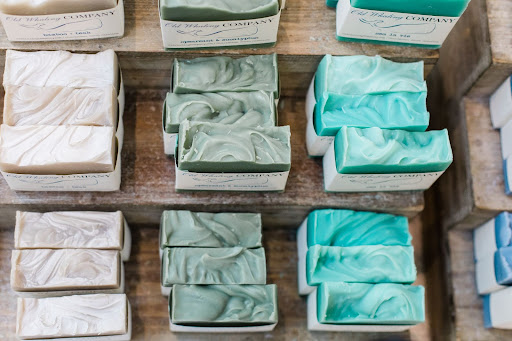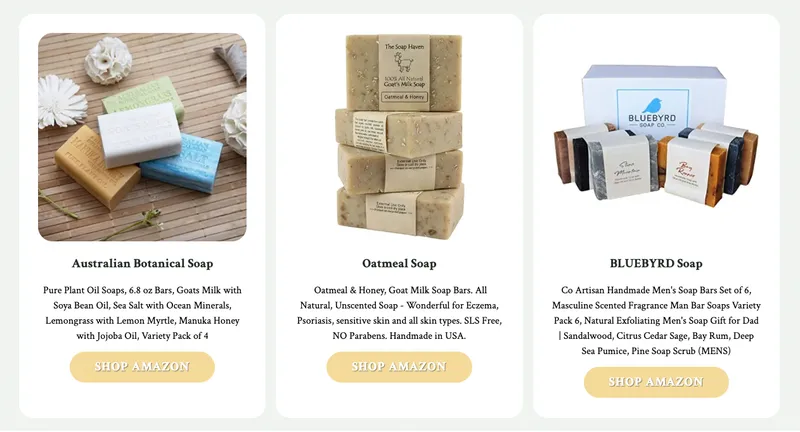Organic soaps: what are their benefits?

Personal hygiene is something everyone takes to heart. We shower, bathe and wash our hands several times a day. But what we don't think about is that while we're thoroughly removing germs from ourselves, we're also putting toxins into our bodies. So choose organic soaps that are free of harmful substances.
Organic (natural) soaps are almost as old as civilisation. The first forms of soap making, with substances similar to the composition of soap identified inside, were served in ancient Babylon: they date back around 5000 years. But around 1500 BC, the ancient Egyptians also used a similar composition of alkaline salts, vegetable and animal fats and essential oils for cleaning.
Our skin protects us - Let's protect it too
The average person's skin is roughly two square metres, in fact it is the body's first line of defence. But it can only do its job if it's healthy: so it's vital that we look after and protect our skin properly. Ensure it is well supplied with minerals and vitamins, and don't let it lack any of these. Although there are many skincare products available, it's not always the same which one you choose. It's easy to get harmful substances into your skin as well as beneficial ingredients. This is particularly true of soaps, which unfortunately receive less attention when it comes to skin care. Of all the cosmetics and cleansers, soap is the one we come into contact with most often.
Toxins in soap
Petroleum derivatives are found in most chemically manufactured cosmetic products, including soaps. Amethyl, ethyl, butyl or propyl parabens may increase the risk of developing cancer. They are also xenoestrogenic hormone-disrupting substances. Because they inhibit estrogen production, they negatively affect the body's natural development. Perhaps the most dangerous soap ingredients are the cleansing and foaming agents sodium lauryl sulphate (sodium lauryl sulphate) and its alcoholic twin sodium laureth sulphate (sodium laureth sulphate). They are highly irritating and can cause skin inflammation, eczema, itching - especially of the head - dandruff and burning eyes. It destroys skin tissue and the proteins and fats that build muscle. Disrupts eye development and can cause cataracts in adults. It takes at least 5 days to clear and removes the natural protective layer of the epidermis. It weakens the immune system when combined with other chemicals to form nitrosamine, which, like the nitrates used in its manufacture, is highly carcinogenic. It is a telling fact that sodium lauryl sulphate is widely used in car wash additives and pesticides.
--> Shop Our Favorite Soaps
What do the scientists say?
Scientists at Philipps-Universität Marburg have investigated the effects of sodium lauryl sulphate on the skin. In a study published in the European Journal of Dermatology, they found that increasing the amount of sodium lauryl sulphate increases the degree of skin irritation.
Use natural products
You can safely avoid the harmful effects of petroleum and sodium derivatives by using organic soaps. Goat's milk and coconut oil soaps are particularly recommended, and you can make them yourself at home. Natural soaps have a similar cleansing effect to conventional products containing harmful additives, are excellent skin care products and do not harm the body at all.
Did you know?
The modern name for soap comes from the Latin word "sapo", which is derived from the word "sebo", meaning tallow. Soap was first used mainly for washing hair and cleaning the scalp. Pliny the Elder, the ancient encyclopaedist and polymath, mentioned in one of his works that he did not agree with the use of detergents. But the ancient products are quite harmless compared to the ones we see on the shelves of shops today.

